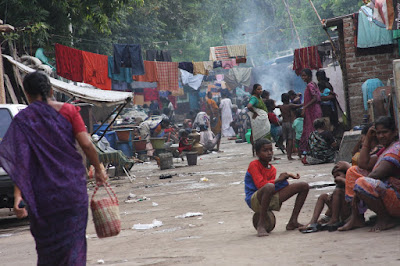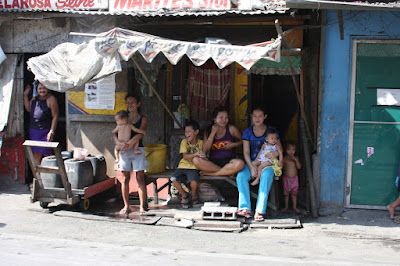As
this tiny virus, a ten-thousandth of a millimeter in diameter makes its way
through different continents and countries, around the world many are concerned
about the number of deaths or the devastation the virus can cause in poor
countries.
If
Covid-19 pandemic can affect United States and other rich countries with the
best healthcare system, still resulting in thousands of deaths, then one can
imagine the high risk these poor people will take during this time.
Even in the United States, according to a recent article in The Economist, "children have fallen behind
in their lessons—and too often gone hungry. The suffering has been skewed by race. A 40-year-old
Hispanic-American is 12 times more likely to die from covid-19 than a
white American of the same age. In São Paulo black Brazilians under 20
are twice as likely to die as whites. As
the world has adapted some of these iniquities have got worse. Studies
suggest that about 60% of jobs in America paying over $100,000 can be
done from home, compared with 10% of jobs paying under $40,000."
Having visited slums and villages in several cities
including, Manila, Bangkok, Mumbai, Kenya, I am worried about the deadly
effects this pandemic that will bring to those people. Social distancing is
virtually impossible in refugee camps or slums. For them, it is a luxury of space
that they do not have. Washing hands is virtually impossible in camps if you
have no running water.
(pictures
taken during my visits: Nat Yogachandra)
Whether for people living in slums in many cities or for
thousands of Rohinya Muslims living in refugee camps in Bangladesh, the
situation is the same. Clearly, their vulnerability to such pandemic is much
higher, where people live in close quarters and often in poor and unhygienic
conditions. The Population density in slums poses an unavoidable challenge to
humanity in the current situation. Testing and ventilators and PPE shortages,
already seen in the U.S, will be even worse in poor countries. A major COVID-19
outbreak in any of them could lead to an almost unfathomable number of deaths. Migrant workers have
been cast adrift, or sent back to their villages, taking the disease
with them.
Dozens of countries in South Asia
and Africa have ordered lock downs. Governments here can tell their citizens to
stay home, but it means families in slums will not eat and die of hunger or
they will go out anyway.
And what about the deadly effects this pandemic will have in areas where people are suffering from issue such as communal riots; between Muslims and Hindus in India or refugee crisis in Africa or Myanmar and Bangladesh, not to mention the millions of displaced people worldwide fleeing from war ravaged areas and economic hardship.
This is the time we must talk of the world as one human family. We all need each other’s help, love and compassion right now. It threatens us the entire humanity. The rich countries, in the meantime must help the poor countries as fast as they can.
And what about the deadly effects this pandemic will have in areas where people are suffering from issue such as communal riots; between Muslims and Hindus in India or refugee crisis in Africa or Myanmar and Bangladesh, not to mention the millions of displaced people worldwide fleeing from war ravaged areas and economic hardship.
This is the time we must talk of the world as one human family. We all need each other’s help, love and compassion right now. It threatens us the entire humanity. The rich countries, in the meantime must help the poor countries as fast as they can.
As UN Secretary-General António Guterres said,
“COVID-19 is the greatest test that we have faced together since the formation
of the United Nations,” he said. “This human crisis demands coordinated,
decisive, inclusive, and innovative policy action from the world’s leading
economies – and maximum financial and technical support for the poorest and
most vulnerable people and countries.”
"It is not for him to pride himself who loveth his own
country, but rather for him who loveth the whole world. The earth is but one
country, and mankind its citizens." - Baha’u’llah,
Prophet Founder of Bahá’í Faith





Comments